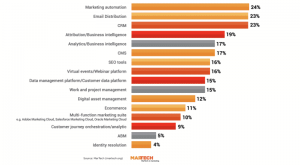Markets are finicky – down, up, dependent on interest rates, geo-political risk – or are they just cyclical? Just over a decade ago the stock market and real estate market were sky high. A few years later you couldn’t give away most real estate and business valuations plummeted with minimal mergers and acquisitions (M&A) activity.
Today, valuations are frothier than ever and M&A activity is especially strong given historic low interest rates. The primary limiting factor to deals getting done is not the availability of money, but CEOs and business owners that demand extremely high prices for companies that were not sellable just five years ago. M&A advisors like CEO Advisor, Inc. advise our clients to, A) always be prepared to sell your company and B) have a documented exit strategy.
Whether you decide to sell your company in today’s hot market, or prefer to hold and grow your business further (and risk another drop in the market), there are certain key areas that you need to focus on to build value and make your business more attractive to current and future buyers.
Strategy
A strategy to make your business irresistible to prospective acquirers may generate the greatest return on investment in your life time. After all, I tell our clients on a regular basis, you never know when the perfect buyer will knock on your door.
5 Critical Factors
Below are 5 critical factors to build value, make your company more sellable, and more attractive to buyers.
- Growth Rate
The growth rate of your company is critical to the value of your business and the attractiveness of an acquirer. Businesses that grow at 10% per year are not attractive to buyers given the many other options they have to acquire faster growing businesses. If your growth rate is stagnant, there are issues that you need to address such as sales, marketing, management team, improved product offerings, etc. if you expect to exit at some point in the future. Growth rate is paramount and this key factor applies to all types of businesses all the time. - Size of Your Company and the Markets You Serve
Companies that are dedicating people and resources to acquiring companies tend to focus on acquiring larger companies. It takes just as much (actually more) time to acquire a small company than it does to acquire a mid-size or large company. Acquirers are looking for revenue and profits that will move the needle on their business. They want strong management, large markets served for future growth and recurring revenue that is substantial and predictable. - Recurring Revenue
If you are only as good as your last project, you are in trouble today. Acquirers see value in recurring, contracted revenue. Not just loyal customers that buy semi-regularly, but a strategy and business model with long-term, contracted customers that is forecastable and predictable where you can easily calculate Customer Churn and Revenue Churn. You need to have a business that has staying power to attract buyers and have them pay you handsomely for your many years of hard work. - Gross Profit and Gross Profit Margins
Your Gross Profit Margin (GPM), or Sales less Cost of Goods Sold divided by Sales, is the number one factor that points to the profitability of providing your products and services to customers. Acquirers are attracted to businesses with high GPM as this will typically result in high Net Profits, Net Profit Margin and Earnings Before Interest, Taxes, Depreciation and Amortization (EBITDA). Trailing twelve months (TTM) EBITDA times a multiple for your industry and type of business is the primary method of valuing privately-held companies and GPM is critical to profitability. For software companies, a multiple of Revenue may be used to determine your value, but GPM is still a major factor that contributes to your value. Depending on your type of business (manufacturing vs. service vs. software have very different Gross Profit Margins), you need to have a GPM that is at or higher than other companies in your industry to optimize your value. If your Gross Margins are low, seek advice from a business advisor as you are leaving a lot of profits on the table, as well as, substantially penalizing your business value and your ability to get a sale done in the future. - Management Team
Strong management is a key factor in running and growing a sustainable business that is attractive to buyers. Interim management (business advisors, CPAs, attorneys, etc.) work well for smaller companies until they reach a certain size where permanent management team members can be hired. If you are the lone senior executive in your company, you need to bring in an outside business advisor and reposition your company to enable growth and build value in your business.
Business & Finance Articles on Business 2 Community
(7)








